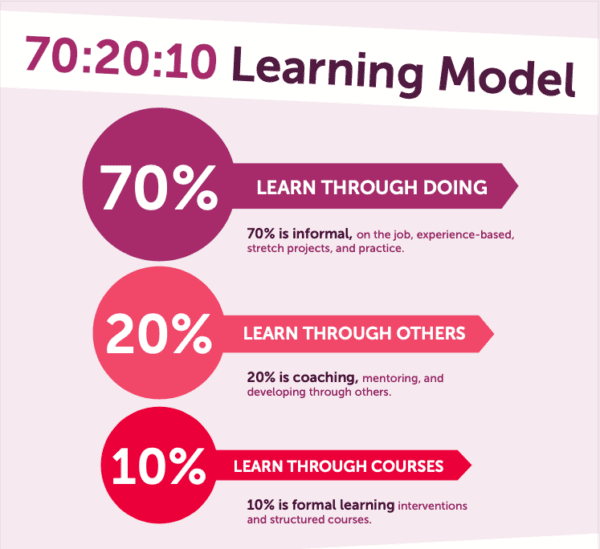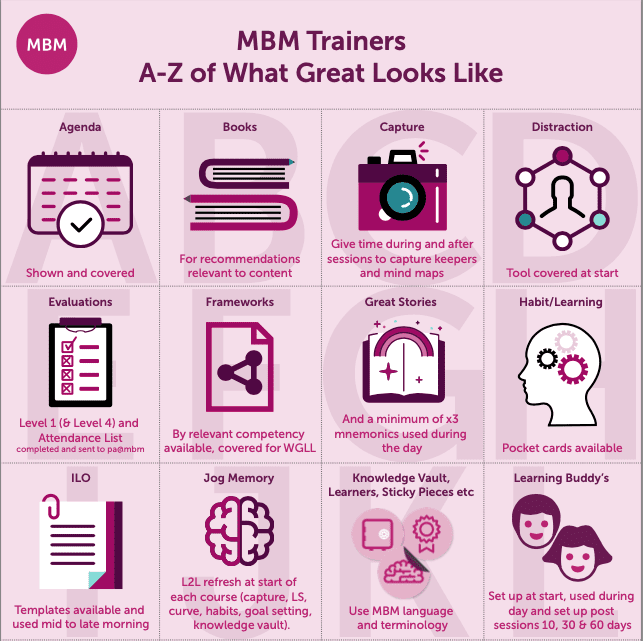The Top 10 Questions on Business Trainers
1. What are Business Trainers?
In the simplest terms, a business trainer is someone that trains other people in how to do business better. The trainer may have more experience or have studied the theory more and is, therefore, able to support other people to become the best version of themselves in that skill/discipline/behaviour.
2. What Does Corporate Trainer Mean?
A corporate trainer is a person that specialises in the training of others. Their role is to design and deliver learning interventions that enable other people to change their behaviours so that they improve in that skill. Normally, a corporate trainer works for the company, in the learning & development or HR department, and their days are spent delivering training courses. A corporate trainer might also be considered to be external. This trainer then comes into the company and trains the employees, and then leaves.
3. What are the Qualities of a Good Corporate Trainer? What Skills Does a Trainer Need?
The answer to this question is very subjective and vast in the answers you will find. Many learners want a trainer that is engaging, humorous, tells stories and provides variety throughout the delivery. Others want to know that the trainer is an expert with extensive experience. And others want someone that empathises hugely with the learners.
You might also say that a corporate trainer has great self-awareness, communication skills, storytelling ability, subject matter expertise, and so on. You might, and we’d agree. However…
Our simple answer is that a good corporate trainer can enable a change in behaviours of their learners. This is because so many trainers and learners do training courses together and then nothing changes back at the workplace, wasting everyone’s time, money and energy.

Sticky Learning ® is 7 times more effective than 1-day training courses. Plus, you will get a Chain of Evidence proving your Return on Investment. Discover soft skills training that changes behaviours long term.

4. What Does a Trainer Do?
A business trainer delivers learning interventions that enable learners to improve that skill, and ultimately, change their behaviours. A fitness trainer motivates and coaches people to improve their physical fitness.
5. What Does it Mean to Be a Professional Trainer?
Most professional trainers choose this role because they want to help people to become better versions of themselves. Professional trainers are like teachers but for adults.
6. What Qualifications Do Business Trainers Need? What Certification is Needed for a Business Trainer?
The answer depends on what type of trainer you wish to be. For example, if you want to train people to be better coaches, many coaches have coaching qualifications. Whereas, if you wish to train people in NEBOS, then you need to have a certification in that discipline. Many trainers have no qualifications and are great trainers because they have crafted their ability to train over many years, continually improving, adapting, and honing until they achieve their goals.
Our best advice, before you become certified in a particular skill is to know how to make learning stick.

7. What is the Salary for Corporate Trainers?
The best answer we have found is provided by Glassdoor. At the time of writing the average salary was around £30k.
8. How do I Become a Business Trainer? How do I Become a HR Trainer? Why Should I Become a Trainer?
You should have an inherent itch to want to help people. This is a great foundation for any trainer. Like being a teacher – rather than a job, it is a vocation. Becoming a business or HR trainer starts by applying for junior jobs in HR and making your way up the ladder. Becoming a business trainer is something you shovel do once you have gained sufficient experience in the real world because then you can understand your learners better.
9. Is Corporate Training a Good Career?
Yes, if you want to help people improve themselves. Just remember that if this is what you love, you’ll soon be promoted to managing a team, where delivering training will be less of your day job. So, the choice is one of progression versus doing what you love every day.
10. What Should I know as a Business Trainer?
- 1. Understand Herrmann Ebbinghaus and the Forgetting Curve and other learning sciences.
- 2. Know what 70 20 10 means and what it is important and how you put it into practice.

- 3. Be familiar with Kirkpatrick’s model.
- 4. Know how to form habits and how to teach others to do so.
- 5. Be willing to continually improve and have a plan for how you will.
- 6. Accept that learners are always busy and that you will need a way to engage them and keep them engaged throughout the programme.
- 7. Don’t do 1-day training courses because they don’t work.





